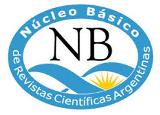Development and Developmental Theory in Argentina
Counterpoints with National Popular Thought
DOI:
https://doi.org/10.24215/23139048e031Keywords:
Industrialization, Development, Developmentalism, National Popular ThoughtAbstract
The world economic crisis of 1929 propitiated in Argentina the end of the agro-export model and the gestation of a new model, of industrialization by import substitution. Beginning in the 1950s, the fundamental premise being that the construction of an integrated industrial structure and economic growth should be deliberately promoted, the idea of development was the common reference object for different arguments, analyzes and prescriptions within social and economic argentine thought. The objective of this work is to investigate this idea in the thinking of Raul Presbichand Rogelio Frigerio, through some theoretical discussions that marked an enriching counterpoint between them and, at the same time, with two representatives of national popular thought such as Arturo Jauretche and John William Cooke.
Downloads
References
Altamirano, C. (1998). Desarrollo y desarrollistas. Prismas: revista de historia intelectual. 2, pp. 75-94.
Cerra, A. (2019). Revisitando las fuentes ideológicas del desarrollismo: Rogelio Frigerio y el marxismo argentino. Páginas: Revista Digital de la Escuela de Historia. Universidad Nacional de Rosario. 11(26). Mayo-Agosto.
Cooke, J. W. (1973). Peronismo y Revolución. Buenos Aires: Granica Editor.
Frigerio, R. (1969). El carácter de la crisis de la economía argentina y la estrategia para superarla. En Armada, A. (Eds.) Desarrollo y desarrollismo. Centro de Estudios Comunidad Nacional. Buenos Aires: Editorial Galerna.
Jauretche, A. (1969). El retorno al coloniaje. La política económica del peronismo y sus críticos. Buenos Aires: Ediciones del Mar Dulce.
Madoery, O. (2016). Los Desarrollos Latinoamericanos y sus controversias. Colección Territorios. Tierra del Fuego: Ediciones UNTDF.
Marini, R. M. (1994). La crisis del desarrollismo. En Ruy Mauro Marini y Márgara Millán (coords.), La teoría social latinoamericana, t. 2: Subdesarrollo y dependencia. México D.F., El Caballito, pp. 135-154.
Prebisch, R. (1955a). Informe preliminar acerca de la situación económica. Buenos aires
Prebisch, R. (1955b). La situación económica del país. Conferencia en el Ministerio de Ejercito. Buenos Aires.
Prebisch, R. (1986). El desarrollo económico de la América Latina y algunos de sus principales problemas. Desarrollo Económico, 26(103) (Original publicado en 1950).
Published
How to Cite
Issue
Section
License
Copyright (c) 2020 José María Aused

This work is licensed under a Creative Commons Attribution-NonCommercial-ShareAlike 4.0 International License.
The acceptance of an original by the journal implies the non-exclusive transfer of the economic rights of the authors in favor of the editor, who allows reuse, after editing (postprint), under a Creative Commons Attribution License -NonCommercial-ShareAlike 4.0 International (CC BY-NC-SA 4.0)
In accordance with these terms, the material can be shared (copied and redistributed in any medium or format) and adapted (remixed, transformed and created from the material another work), provided that a) the authorship and original source of its publication (magazine and URL of the work), b) is not used for commercial purposes and c) the same license terms are maintained.
The transfer of non-exclusive rights implies that after its publication (postprint) in Cuadernos de H ideas the authors can publish their work in any language, medium and format; in such cases, it is requested that it be stated that the material was originally published in this journal.
Such assignment also implies the authorization of the authors for the work to be harvested by SEDICI, the institutional repository of the National University of La Plata, and be disseminated in the databases that the editorial team considers appropriate for increase the visibility of the publication and its authors.
Likewise, the journal encourages the authors so that after their publication in Cuadernos de H ideas they deposit their productions in other institutional and thematic repositories, under the principle that offering society scientific and academic production without restrictions contributes to a greater exchange of global knowledge.










.png)

























